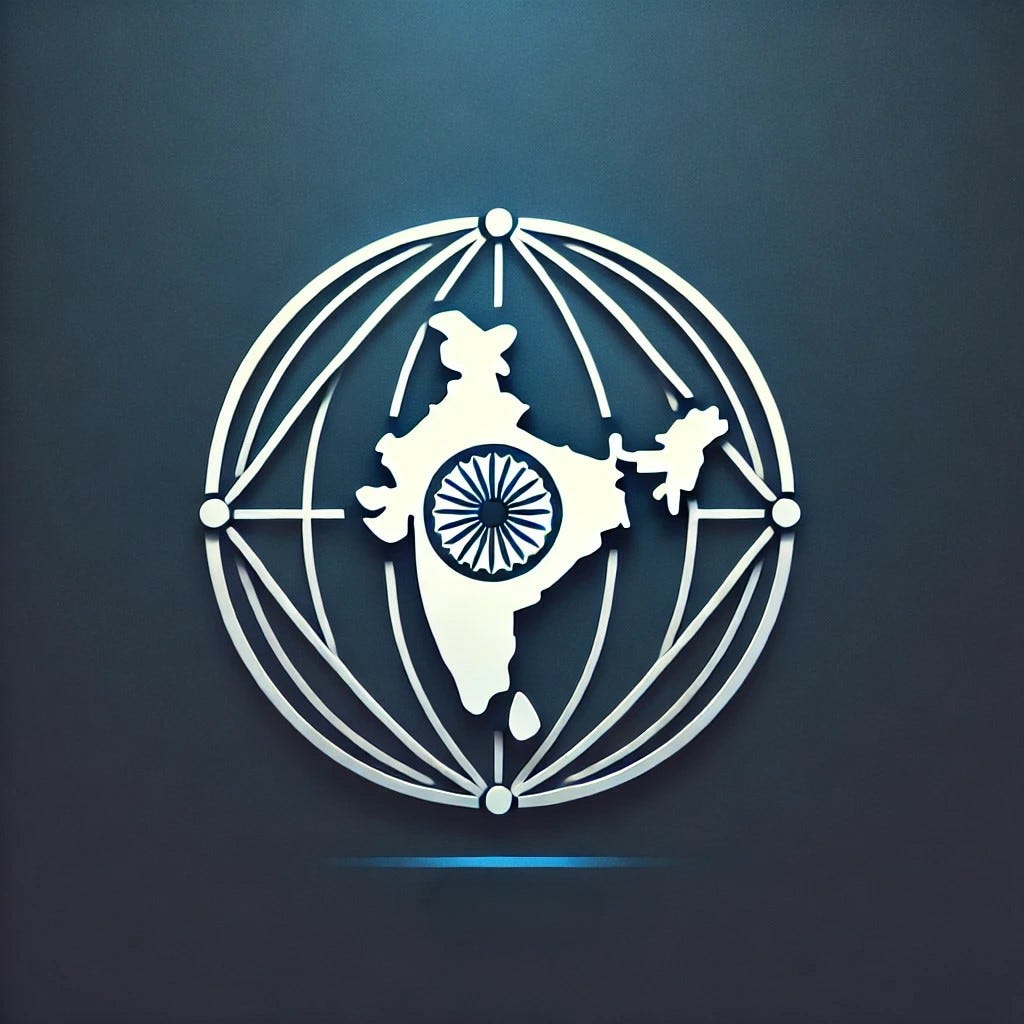Bye Bye, Big Birdies
Covering Chinese policy and rhetoric on external events and actors, military and security issues, economy and technology, and bilateral relations with India.
Guarding the Great Wall: More Purges? Really?
Anushka Saxena
In the past week, the news cycle surrounding political flux and more purges in the Chinese People’s Liberation Army (PLA) has really picked up steam. The five big names that have emerged as rumoured to be arrested/under investigation/ disappeared from public eye are:
He Weidong (何卫东; Vice-Chairman, Central Military Commission [CMC]; 3rd-in-command of the Chinese defence and security decision-making apparatus)
Lin Xiangyang (林向阳; Commander of the Eastern Theater Command)
Wang Houbin (王厚斌; Commander of the PLA Rocket Force)
Wang Xiubin (王秀斌, former Commander of the Southern Theater Command)
Tang Yong (唐勇; CMC Discipline Inspection Commission’s Deputy Secretary)
Let’s start with last first. It is official that Tang Yong’s membership qualification for the Chinese People’s Political Consultative Conference (CPPCC) has been revoked. As highlighted in the excerpt of the People’s Daily report on Wang Huning presiding over the 34th Chairpersons’ meeting of the 14th CPPCC:
…The meeting passed a decision to revoke the membership qualifications of Tang Yong, Dang Yanbao, and Li Minji from the 14th CPPCC National Committee, which will be submitted for confirmation at the 12th meeting of the CPPCC Standing Committee.
The other two individuals have backgrounds in business and finance: Li Mingji is former chairman of Hua Xia Bank, and Dang Yanbao is chairman of Ningxia Baofeng Group. Dang has been featured on the Bloomberg Billionaires Index (2022) and was once the richest man in Ningxia province.
For He Weidong, Wang Houbin, Wang Xiubin, and and Lin Xiangyang, the reportage is a mix of breaking stories on ‘X’ (formerly Twitter), by citizen journalists Zhao Lanjian (@uyunistar on X) and Cai Shenkun (@cskun1989 on X), as well as on digital platform like Washington Times and People News Today (Cai also has articles on the subject for ‘Creaders.net’). While the ‘X’ pieces by Zhao and Cai focus on trusted sources informing them of the arrest of the four officials sometime in March, the Washington Times story (dated March 25, 2025) specifically discusses He Weidong’s arrest, as confirmed to the platform by unnamed US intelligence agencies. The People News Today story from 28 March further alleges on Tang Yong’s removal, that his rumoured crime was “leaking information about Miao Hua’s investigation, and the leaked details were reportedly about Taiwan war plans, which were shared with Miao Hua by He Weidong and Lin Xiangyang.” There are no details on who this information was allegedly leaked to.
There is no official confirmation from Beijing on the news surrounding He, the Wang, or Lin, but let’s look at a basic marker – presence across official websites.
When the suspension of Miao Hua (苗华), former Director of the Political Work Department of the CMC was confirmed late last year, the link to his profile and articles pertaining to him were removed from the Chinese website of the Ministry of National Defence (specifically, its ‘Senior Officials’ section). At this juncture, that link seems to be working just fine for He Weidong. Further, many have pointed out that he has been missing from public eye for a long time. But if one looks at the last official reportage of He and CMC second-in-command Zhang Youxia (张又侠)’s public presences, they both appeared at the ‘Two Sessions’ on March 10.
Additionally, in He’s case, one should take confirmation by ‘US Intelligence agencies’ with a grain of salt too, given that it was some US officials who confirmed to FT on November 27, 2024 that Defence Minister Dong Jun is likely to be under investigation. He may have indeed been taken in for questioning, but so far, he appears safe and continues to remain in public eye.
Articles pertaining to Wang Houbin, Wang Xiubin, and Lin Xiangyang continue to show up on 81.cn, the official military media network, as well. For Lin, the last piece of news pertains to his remarks at the Symposium on the 20th anniversary of the implementation of the Anti-Secession Law. For Wang Houbin, it’s the report of his promotion to the rank of General (shangjiang) in July 2023. For Wang Xiubin, it’s the coverage of his talks with the French Indo-Pacific Commander D’Andigné in late April 2024.
But for a moment, I would like to examine the whole affair as if it is all true. Firstly, the fact that He Weidong is expected to be taken down, is Huge with a capital ‘H’. It signals a great strife in the highest security decision-making apparatus of China, the seriousness of which is unmatched by any other purges of the past three years. It also signals that no close confidante of Xi Jinping is safe, and nobody’s position is secure.
The past 2+ years have seen great churn in the PLA and the CMC. Leading officials from the Rocket Force, the Navy, most theater commands, and the CMC have been put under the radar for discipline-related violations. In the case of Li Shangfu, the corruption was linked to a scandal in the CMC Equipment Development Department (EDD), which he headed between 2017 and 2023. But it seemed clear that there was some factional struggle at play, with those at rungs at a relatively junior level than top officials in the CMC fighting for power and revealing hidden skeletons in the closets of their competitors, even if the latter group were loyalists and protégés of Xi.
But when I covered the Miao story for a previous edition of ‘Eye on China’, I had clearly expressed concerns that with his suspension, things have escalated to the very top, and that even He Weidong may soon be under the radar.
Let’s revisit that story. On November 28, 2024, Colonel Wu Qian, Director of the Information Bureau of and spokesperson for China’s Ministry of National Defense (MoND) announced that Miao Hua, a member of the Central Military Commission (CMC) and Director of the Political Work Department with the rank of General, is suspected of serious disciplinary violations. He further added at the widely covered press conference that the decision to suspend Miao Hua for investigation followed intense deliberation by the Central Committee of the Communist Party of China (CPC).
Miao’s suspension came at the heels of a report by the American media platform Financial Times (dated November 27) that Chinese Defence Minister Dong Jun too, may have been placed under investigation for corruption, which seemed a bit too quick to have been true given that just on November 20 and 21, Dong was in Vientiane, Lao PDR, to attend the 11th ASEAN Defence Ministers’ Meeting-Plus. Normally, in the Chinese system, public presence or absence is a marker for whether an official is still in the safety net or not, vis-à-vis corruption, disloyalty, or other grave violations of part discipline. One would remember that in the cases of former Foreign Minister Qin Gang and former Defence Minister Li Shangfu, their respective public absences before the stories of their official dismissal broke out, were 1 and 2 months. For now, suspicions regarding the investigation against Dong have been quashed by Foreign Ministry spokesperson Mao Ning in one of her regular press conferences (either November 27 or 28; the question regarding the same has been removed from the press releases), where she reportedly said that FT was “grasping winds and shadows” (“捕风捉影”).
Why is it a Factional Affair?
Miao was brought up in Fuzhou, Fujian, and had worked there for a long time in the PLA. As head of the Political Work Department as well as a member of the PLA Election Committee, Miao was responsible for quite a number of recommendations for high-ranking posts.
For starters, having served as the Political Commissar of the PLA Navy (PLAN) between December 2014 and September 2017, Miao is highly likely to have cultivated close contact with Dong Jun, who, exactly in December of ‘14, was appointed to the post of Deputy Chief of Staff of the PLAN. Rumour has it, that it was Miao who recommended Dong for the ministerial post in the aftermath of Li Shangfu’s swift removal.
Similarly, Miao is very likely to have been closely associated with Wang Xiubin, former commander of the Southern Theater Command, who only recently disappeared from public view since being removed from the post. Wang’s last few public appearances as commander of the STC have been in the form of foreign consultations in April 2024, first with France’s Commander of the Pacific Ocean and French Polynesian maritime zones Rear Admiral Geoffrey d’Andigne in Beijing on April 25, and then at a virtual meeting organised by the US Indo-Pacific Command in their Hawaii HQ on April 29. The former meeting also went well, as the two sides signed a ‘Framework Document on Conducting Inter-theater Maritime and Air Cooperation Dialogue between the Southern Theater Command of the Chinese People’s Liberation Army and the Pacific Ocean Command of the French Forces’ (中国人民解放军南部战区和法国军队太平洋海区关于开展战区间海上与空中合作对话的框架文件). Now, it is likely that sometime between the ends of April and July 2024, General Wu Yanan was handed the baton.
While Miao and Wang didn’t have any overlapping tenures in a particular province, both have a shared history of having served in the pre-2015-reform 31st Group Army (now the 73rd Group Army of the PLA Eastern Theater Command) based in Fujian. More importantly, Wang had, in the course of his long tenures in Fujian and Zhejiang, cultivated close ties with Xi Jinping, and was, in many ways, a close ally. And given that Miao is a close ally of Xi himself, it is likely Miao and Xi were in agreement when Wang’s name came up for the respective post of Deputy and Commander of the two main naval theaters – the Eastern and Southern Theater Commands.
Further, when Dong was promoted to the post of Defence Minister in December 2023, he was the first from the Navy to assume the post. Dong was expected to step up to accelerate combat preparedness in hostile naval theaters. But from the perspective of the internal decision-making hierarchy, his role as was primarily public-facing. This is par for the course in the Chinese system. However, Dong has not enjoyed substantive authority. Despite being in the position for a year, he has been excluded from the CMC. Both his purged predecessors, Li Shangfu and Wei Fenghe, were members of the CMC. Dong’s exclusion is likely indicative of resistance among factional opponents up the hierarchy.
His appointment, nevertheless, was seen as an extension of Miao’s authority. Now with Miao’s, and even He’s potential suspension, Dong’s position does seem suspect. What further adds credence to this theory of factional infighting at the highest levels is the series of actions taken against officials such as Lin Xiangyang.
He Weidong, Dong Jun, Wang Xiubin, Lin Xiyangyang and Miao Hao – they have all, in the past, been associated with each other through their own work, or through Xi Jinping’s work, in Fujian (further, they have either had few overlaps in tenures working with the 31st Group Army in Fujian, or in the PLA Navy – the latter also including Wang Houbin, who had a PLAN background before he came in to commandeer the PLARF).
Cai Shenkun himself, on November 11, 2024, informed the public via X that Miao had been arrested by “hooded” officials from his residence, has referred to a bunch of these officials as part of a “Fujian gang” in the PLA/ CMC. These can be pitted against the presence of a strong “Shaanxi gang” in the military, led apparently by CMC first vice-chairman Zhang Youxia. If one looks at the split, one realises that Miao Hua and Dong Jun are both a part of the so-called ‘Fujian gang’ (as traced above), and their potential promoter and supporter is none other He Weidong. He’s gang all seem to have a naval theater–east coast connection, with a scholar in INDSR (a Taipei-based think tank) also referring to many of them as part of a “Taiwan Strait Gang”.
If one looks at Zhang’s so-called “Shaanxi gang”, CMC member and Discipline Inspection lead Zhang Shengmin figures right on top. He was born in Shaanxi and served with the pre-2015-reform Second Artillery force (now Rocket Force) for a long time, before joining the Discipline Inspection Commission of the CMC as Secretary in 2017. It must be noted that Zhang Shengmin’s beloved Rocket Force has been the subject of a great shakeup in the past few years, with former senior leaders such as commander Li Yuchao and commander Xu Zhongbo having been charged with corruption and serious violation of discipline last year. Both the Zhangs also have a shared history of working with the PLA Army, and it is no surprise that Zhang Shengmin is the CMC’s anti-corruption and discipline investigation czar – a hammer Zhang Youxia may have no trouble wielding (including against Tang Yong, who also had overlapping tenures with Miao and He when he was placed in the Nanjing Military Region legal system).
Another name that has not popped up at this juncture is that of Qin Shengxiang, former Director of the General Office of the CMC – but we may hear about him in the coming days if this all ties together to a 31st Group Army/ Navy/ Fujian/ Taiwan connection. Qin has been closely tied to Xi Jinping and Miao Hua, in that he has taken up leadership roles in the navy all his life, and was chosen quickly to succeed Miao in the role of PLAN Political Commissar in 2017. He also served for long in the 38th Group Army (now the 82nd Group Army of the Central Theater Command), whose functioning Xi held close to his heart. Since October 2024, he, too, is rumoured to be investigated for corruption.
War Over Taiwan
The obvious bit in a lot of this, is that all the alleged (or proven) suspects are privy to China’s war plans over Taiwan, either by having worked in the Eastern Theater or the PLA Navy – and the seriousness of how much they know ranges in grade all the way from ex-employee of the 31st Group Army, to ETC Commander, to CMC member, to Vice-Chairman of the CMC. It is also a general trend in the past few years, that the Chinese defence and security ecosystem has become much more belligerent, rhetorically and operationally, in its Taiwan reunification agenda (hoping to cover latest developments on this front in the next edition).
When war over a historical, legacy issue looms, and the PLA is striving to prepare for actual combat, there is no room for such scandals. Eventually, as the investigation progresses, anyone affiliated with incompetence, political or tactical, and subversion of authority, will fall like dominoes. And there is obviously both, a politico-factional and a tactical, Taiwan-related component. Exactly where the two meet, is left to imagination.
Latest from the Indo-Pacific Studies Team:
To begin with, we are delighted to introduce you to two new newsletters we have launched as part of the Indo-Pacific Studies Programme at Takshashila:
Pakistan Paigham, a fortnightly bulletin by Aishwaria Sonavane: This newsletter is an invitation to diversify Indian perspectives on Pakistan, moving beyond cursory assessments to build a deeper, more nuanced scholarship on this pesky neighbourhood relationship.
The Indian Radius, a weekly newsletter by Vanshika Saraf: This bulletin examines the breadth and depth of India’s foreign policy, its economic and security imperatives. In a world of shifting power equations and contested global governance, it is vital to understand and anticipate India’s next moves.
Manoj Kewalramani hosts author and futurist Emmanuel Daniel for the latest episode of ‘The Great Power Show’. The conversation unpacks the politics of the global financial system, focussing on the strength of the dollar, the internationalisation of the RMB, the potential for a BRICS currency and the role of cryptocurrencies in the future of global finance. Tune in here:
Further, Manoj, along with Aditya Ramanathan of Takshashila, appears on the ‘All Things Policy’ podcast, to talk about ‘Trump’s World: What are India’s Options?’ Tune in to the video episode here:
In an opinion column for MoneyControl, Vanshika Saraf talks about how Germany finally shakes off its fiscal straitjacket to cope with tectonic shifts. Her main argument? Both houses of Germany’s Parliament have approved carveouts in the country’s restrictive “debt brake” in the wake of mounting economic and geopolitical challenges. For Washington, it offers a much-needed “burden-sharing” partner. For Russia and China, it is a clear signal that Europe is mobilising for long-term strategic competition.
Finally, in her latest opinion piece for Indian Express, Anushka Saxena discusses the recently concluded ‘Black Sea Deal’ between the US, Russia and Ukraine. Her main contention? Russian President Vladimir Putin seems to have gained quite some leverage, putting the US and the West on a timeline for the cessation of hostilities in the Black Sea, by making peace conditional to the fulfillment of his demands.








